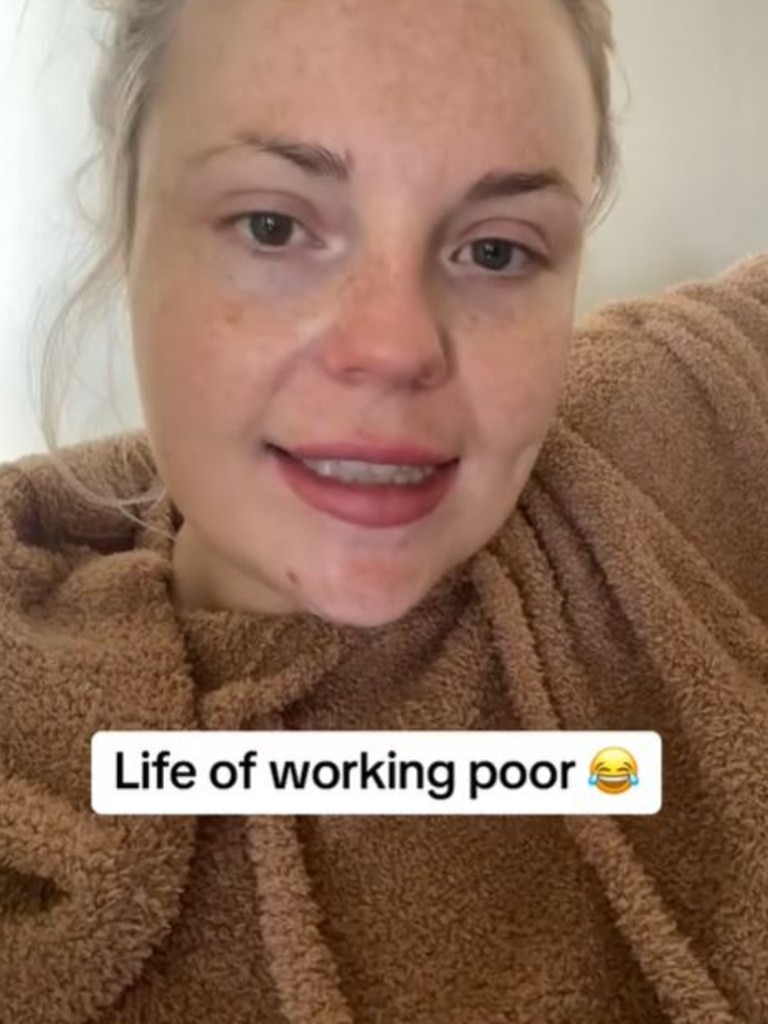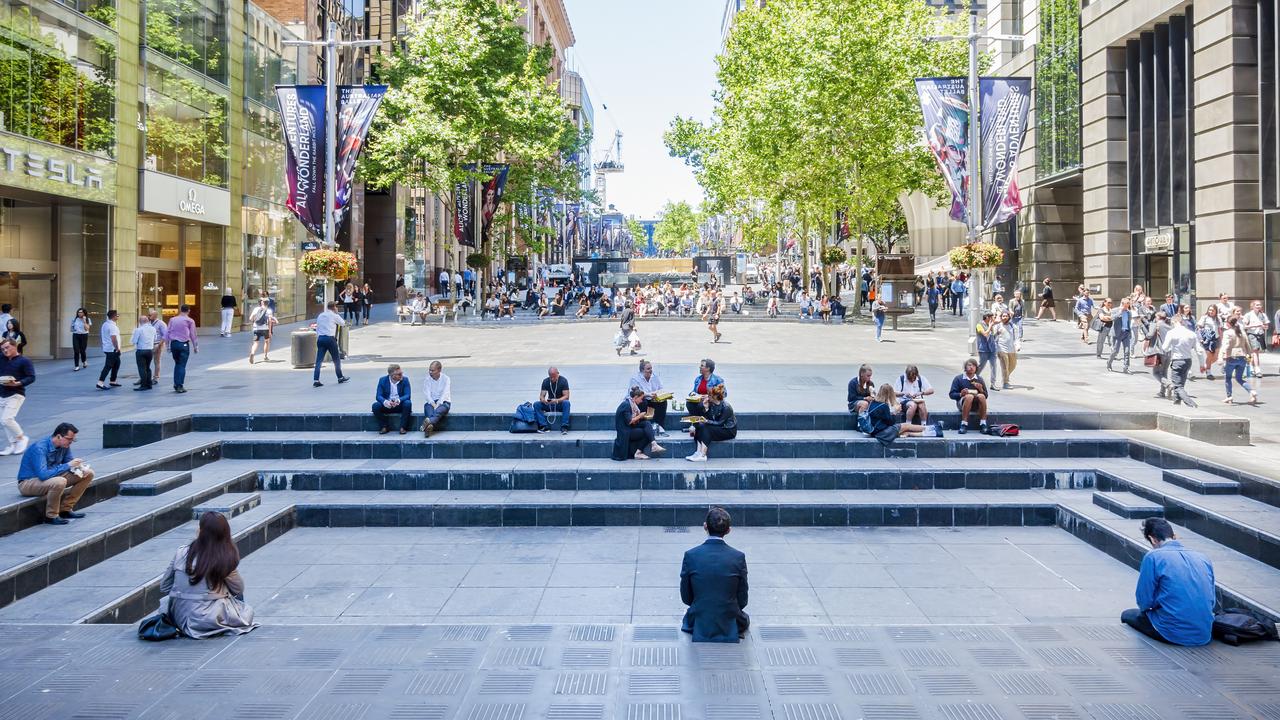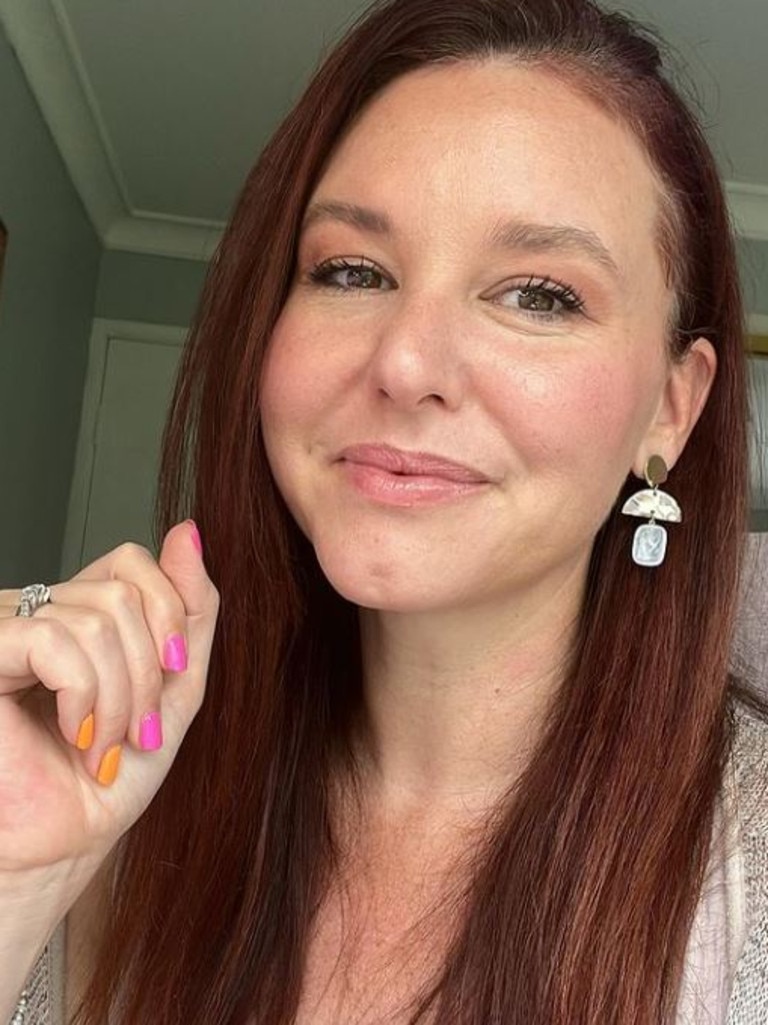Aussie mum reveals how she’s part of the ‘working poor’ while earning $77,000
A young Aussie has detailed the crushing moment she realised that, despite working full-time and earning a decent wage, she is still “poor”.
At Work
Don't miss out on the headlines from At Work. Followed categories will be added to My News.
A young mum is part of the growing number of Aussies who are classifying themselves as “working poor”, with the Aussie sharing the crushing moment that made her realise she was still broke.
Alicia, a 31-year-old mother-of-two, earns $77,000 per year but, despite this, she recently had to cancel her child’s extra-curricular membership because she couldn’t afford it anymore.
She was told she needed to give 30 days’ notice and was required to pay $79 for one more month.
Alicia didn’t have the money to make the final payment; the payment bounced back, and she was left paying a $9 service fee on top of the $79 payment.
The moment left her having to face the fact that she had “no money” until she was paid next.


In a TikTok that has amassed over 40,000 views, Alicia said the experience made her
realise how precarious her financial situation is because she has no savings.
She also noted she has a $900 electricity bill to pay and, when you have no money buffer, a bill of that size can quickly lead to hardship.
According to comparison website Finder, this cycle of having “no money” at the end of their pay period isn’t abnormal for Aussies, with 45 per cent revealing they have less than $1000 in their bank account.
The single mum works full-time and making $77,000, which, on the surface, sounds like a reasonable wage – but is it in 2024?
According to Finder, the median wage in Australia is around $67,600, so Alicia’s earnings are above the average.
However, her rent to live on NSW’s Central Coast is $530 and she pays $321 out of pocket for childcare weekly.
By the time she pays her base costs each week, she’s left with just shy of $400 to spend on groceries and keeping the household running.
Despite having a good job as a project officer that allows her the flexibility to work from home, she’s struggling because inflation costs are “insane”.
“I work full-time. I work while sick to make ends meet. I don’t have eyelashes. I don’t have my nails done. I try and repair things myself. I don’t get my eyebrows done, I do that myself to save money,” she said.
When grocery shopping, the mum looks at cheaper “alternatives” for everything, including laundry liquid.
“I have had to look at alternatives for everything. If I’m working full-time, I don’t know how other people are doing it. You know, I’m doing it really tough. I’m classed as what they call a ‘working poor’, and you do have to cut back on those luxuries,” she said.
Alicia said she rarely gets take out, often cancels memberships and constantly has to watch what she spends on essentials.

She has had to cut back on things like food expenses and now buys her children’s clothes in bigger sizes than they need so they can wear them for longer.
“Any streaming services I’ve had to cancel. I’ve had to buy cheaper globes and use lamps rather than the down lights and the lights installed in the house,” she told news.com.au.
“I have had to change from brand-name washing liquids to cheaper alternatives. I wash clothes in the machine during off-peak hours.”
The single mum said she feels like she can’t get “ahead” because most of her money is spent on rent and childcare.
“I had to outlay recently for hearing aids and put on a payment plan … just so I can hear and do my job. I feel most families are struggling with just meeting the basic necessities, and we are having to rely more than ever on Afterpay to get from week to week,” she said.
Alicia doesn’t feel there’s a way out either, if she moved to a cheaper area she would lose access to a lot of the services she relies on.
“It takes a huge toll on me emotionally as just recently, I was looking to relocate to a more rural area, but I was faced with no childcare options to maintain and sustain employment,” she said.
Despite working full-time, Alicia doesn’t feel like she has a “comfortable” life with her children.
“I feel like I am unable to reap the benefits of working and live a comfortable life with my children. I remember growing up, a salary like mine would’ve made my family live on an easy street,” she said.
Money expert Sarah Megginson said that many people are struggling with their financial situation more than they have in the past.


“Those who used to consider themselves part of the working class are now part of the working poor. Many middle class families are struggling to the point of relying on services they’ve never needed before, like food banks and charities,” she said.
Ms Megginson pointed out that people who work full time, who never thought they would find themselves in a position to need these services, are suddenly having to rely on them.
“With rents or mortgages now taking up more than 50 per cent of income in some households, providers are saying they’ve never seen so much demand for support,” she said.
Ms Megginson said Alicia is struggling on a salary of $77,000 because of circumstances out of her control.
“One person earning $50,000 could live in a regional community with a low cost of living, happily sticking to a budget and feeling financially comfortable. And they could have a friend in Sydney earning $100,000, living alone and spending 75 per cent of their income on rent and utilities, using their emergency credit card to buy groceries, and feeling constantly stressed about money,” she said.
Ultimately, Ms Megginson pointed out that people struggle because of the high cost of living.
“Until we get the housing situation under control, we’re stuck with these sky-high rents and until inflation drastically falls, we’re stuck with higher interest rates on our mortgages,” she said.
Originally published as Aussie mum reveals how she’s part of the ‘working poor’ while earning $77,000









